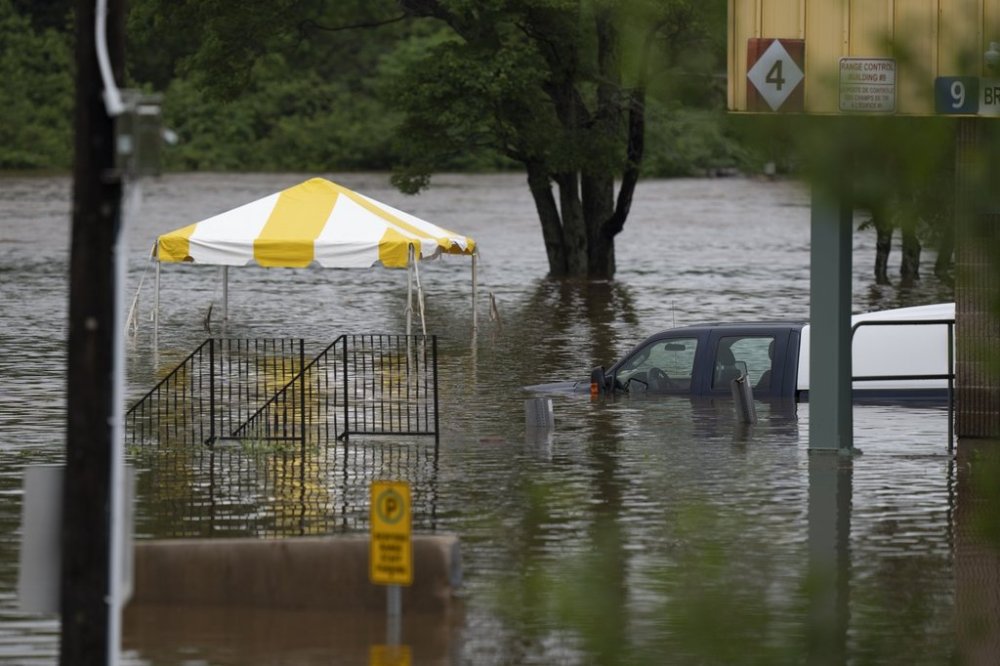Science
Canada Urged to Enhance Weather Service Amid U.S. Funding Cuts

A recent report highlights the urgent need for Canada to strengthen its weather service, particularly in light of funding cuts from the United States. The document, prepared for Environment and Climate Change Canada, emphasizes the necessity for a coordinated flash flood warning system and suggests that partnerships with European nations should be expanded.
The independent assessment by the Council of Canadian Academies warns that reductions in funding for the National Oceanic and Atmospheric Administration (NOAA) threaten Canada’s ability to monitor weather patterns across various regions, including the Arctic and the Great Lakes. The cuts could impact a broad range of services related to weather and water monitoring that are crucial for effective forecasting.
In its findings, the report underscores the importance of maintaining Canada’s own observation network, particularly as climate change and advancements in artificial intelligence reshape forecasting methods. Despite this necessity, the report notes significant gaps in the current network, especially in northern regions where weather stations can be located hundreds of kilometres apart, potentially missing vital weather data.
Climate change is a central theme in the report, with the authors indicating that it is likely to increase the demand for timely and accurate extreme weather warnings. While the document refrains from making formal recommendations, it emphasizes the need for a cohesive flood forecasting system to address the inadequacies of the current fragmented warning and response mechanisms across Canada.
Furthermore, the report reveals that climate change is exerting additional pressure on Canada’s weather infrastructure and financial resources. Extreme weather events are damaging existing weather stations and driving an increased demand for high-quality data to inform climate models. Despite these growing pressures, the report points out that “program spending on hydro-meteorological services has remained relatively static over the past five years.”
The federal government commissioned the report to explore the essential functions of the public hydro-meteorological service and its capacity to adapt to rising demands. Notably, the report discusses recent changes at NOAA. With the U.S. administration implementing funding cuts and limiting international collaboration opportunities for its scientists, “Canada’s access to rich remote sensing data may be in jeopardy,” according to the assessment. Such a loss could hinder Canada’s ability to perform precise weather and climate analysis.
The authors assert that reduced funding for NOAA and its uncertain role in data sharing further highlight the need to bolster Canada’s data sovereignty. They advocate for greater collaboration with European service providers to mitigate potential impacts of U.S. funding reductions.
While the report acknowledges the potential of artificial intelligence to enhance forecasting accuracy, it warns that AI models often have opaque decision-making processes and may falter in unprecedented scenarios, particularly those driven by climate change where historical data may no longer apply.
The report concludes that integrating AI with traditional physics-based modelling will be crucial for developing future forecasting systems. Such integration is expected to yield more accurate, reliable, and frequent weather predictions, aligning with the increasing demands brought on by a changing climate.
This report by The Canadian Press was originally published on September 11, 2025.
-

 World4 months ago
World4 months agoScientists Unearth Ancient Antarctic Ice to Unlock Climate Secrets
-

 Entertainment4 months ago
Entertainment4 months agoTrump and McCormick to Announce $70 Billion Energy Investments
-

 Lifestyle4 months ago
Lifestyle4 months agoTransLink Launches Food Truck Program to Boost Revenue in Vancouver
-

 Science4 months ago
Science4 months agoFour Astronauts Return to Earth After International Space Station Mission
-

 Technology2 months ago
Technology2 months agoApple Notes Enhances Functionality with Markdown Support in macOS 26
-

 Top Stories3 weeks ago
Top Stories3 weeks agoUrgent Update: Fatal Crash on Highway 99 Claims Life of Pitt Meadows Man
-

 Sports4 months ago
Sports4 months agoSearch Underway for Missing Hunter Amid Hokkaido Bear Emergency
-

 Politics3 months ago
Politics3 months agoUkrainian Tennis Star Elina Svitolina Faces Death Threats Online
-

 Politics4 months ago
Politics4 months agoCarney Engages First Nations Leaders at Development Law Summit
-

 Technology4 months ago
Technology4 months agoFrosthaven Launches Early Access on July 31, 2025
-

 Top Stories2 weeks ago
Top Stories2 weeks agoFamily Remembers Beverley Rowbotham 25 Years After Murder
-

 Top Stories6 days ago
Top Stories6 days agoBlake Snell’s Frustration Ignites Toronto Blue Jays Fan Fury





















